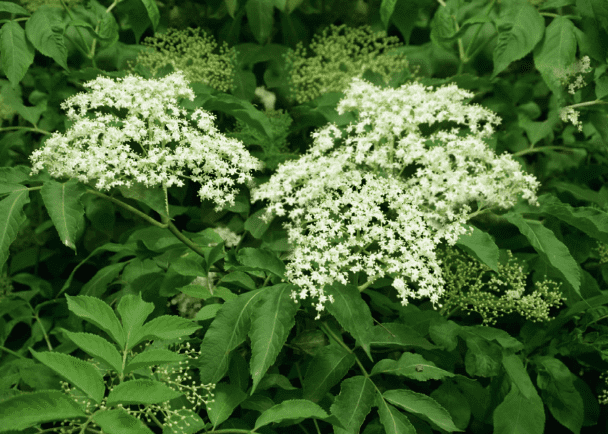
American elder (Sambucus canadensis)
American elder, also known as American black elderberry
The American elder (Sambucus canadensis) is a native North American deciduous shrub known for its clusters of small white flowers and dark berries. The berries, when cooked, can be used in various culinary applications like jams, jellies, syrups, and pies. Additionally, both the flowers and berries can be used to make wine.
Ecologically, the shrub's dense foliage and arching branches create an ideal habitat for birds, offering both food and nesting sites. The berries are particularly attractive to birds and other wildlife, making the shrub an important part of the ecosystem.
Key Facts About American elder
Attributes of American elder
Lifespan
Perennial
Plant Type
Shrub, Tree
Plant Height
3 m
Spread
1.5 m to 3.5 m
Leaf Color
Green
Flower Size
5 mm to 6 mm
Flower Color
White
Scientific Classification of American elder
Phylum
Vascular plants
Class
Dicotyledons
Order
Dipsacales
Family
Moschatel
Genus
Sambucus
Species
American elder
Toxicity
Ingestion, especially of unripe berries, roots, bark, and leaves